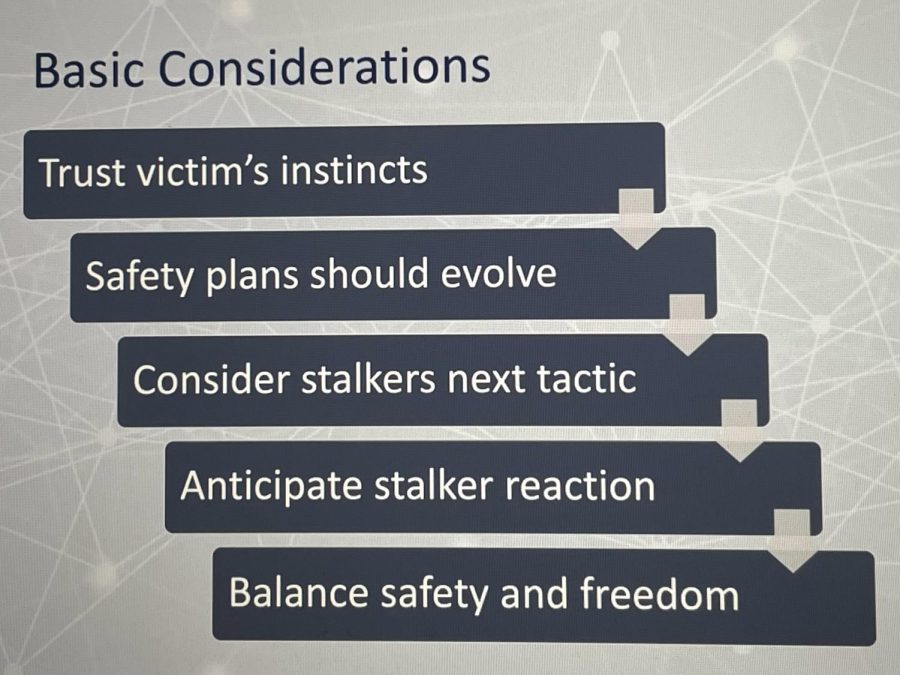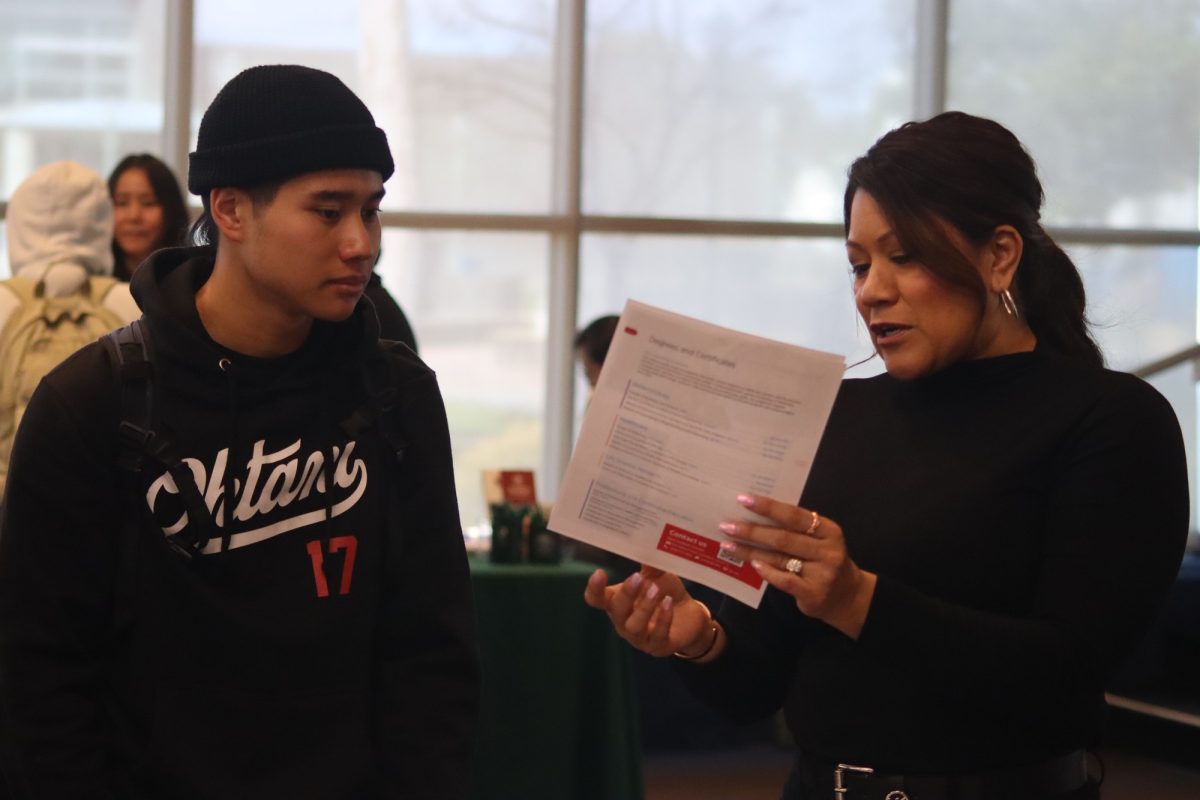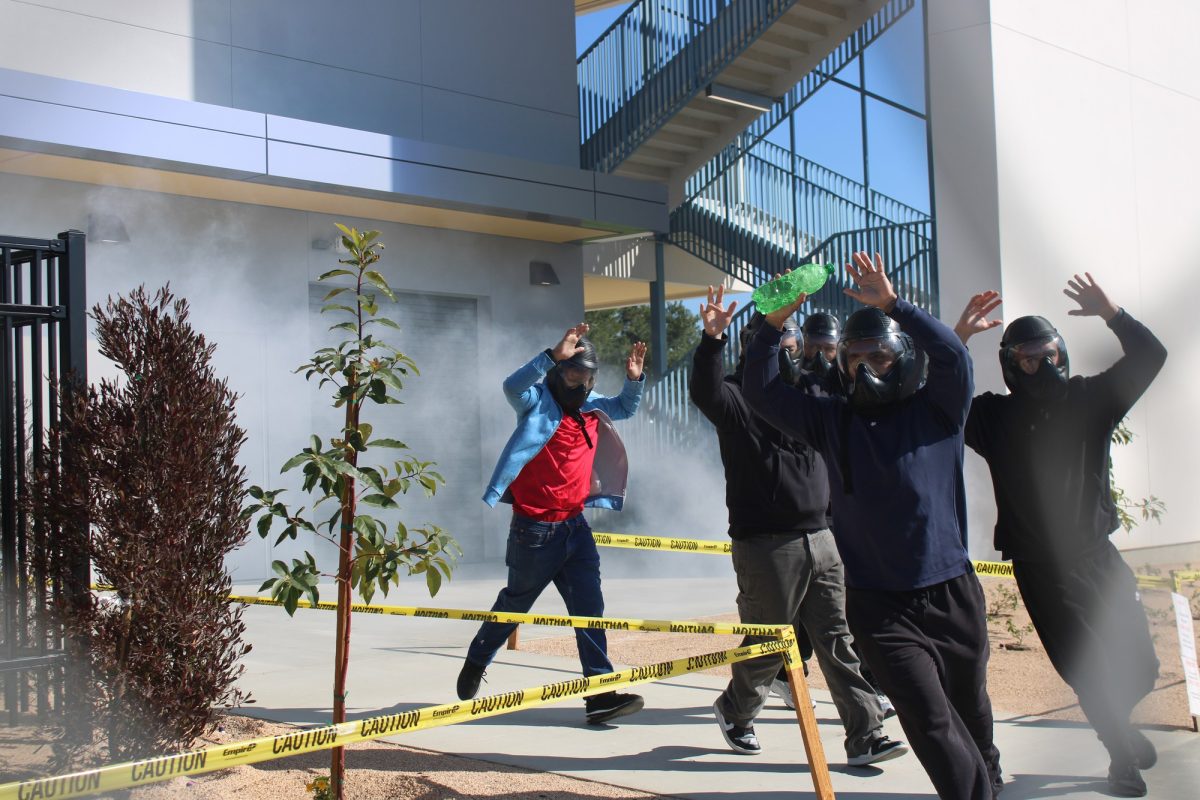On Jan. 16 Debbie Riddle, who lost her sister to stalking, spoke with Cerritos College during human trafficking and stalking awareness month via Zoom on how important it is to raise awareness on this topic.
Stalking is defined as acting in a threatening manner with unwanted behavior towards a specific person. In taking preventive measures by educating oneself, you can help create a safer environment and decrease the high rates of stalking.
Angel Gray, Cerritos College’s campus victim’s advocate, will be hosting a meeting for participants to join at Cerritos College held on Jan. 18 – 20 and Jan. 25 – 27.
On Jan. 18, guest speaker Debbie Riddle shared her personal experience where she lost her sister, Peggy Riddle due to stalking. Riddle’s goal is to educate the community about how important it is to take preventative measures after seeing the first sign of stalking.
“Stalking is a pattern of behavior directed at a specific person that would cause a reasonable person to feel fear,” Riddle said. “This person is inducing fear into another person.”
Riddle explained stalkers send items they consider special, such as flowers and gifts. Stalkers show non-criminal behaviors and appear normal but can also be inducing fear within their victim. This was the case with Riddle’s sister experience which law enforcement did not handle properly.
Some signs of stalking also are receiving consistent unwanted messages or calls via any platform, showing up without consent to a victim’s place, threatening the victim, passing around false information about the victim, sneaking behind and following the victim, etc.
Riddle says the victim-offender relationship mostly appears in intimate partners, but can also include stalking done with acquaintance strangers, family or friends, and people of authority.
“There is an obsession going on,” Riddle said, “they’re planning to commit a crime. rapists will often say, of course, I stalked my victim before I committed the crime of rape.” The offender’s goal in stalking is to continue without boundaries and to achieve the goal of infiltrating in victims life at any cost.
“You know I’m going to hurt you. I’m going to hurt another member of your family. If you don’t come back to me I’m going to kill myself,” the guest speaker said, which were the words of many stalkers.
Riddle says victims are then left in constant fear of what’s going to happen next and being afraid to see what will happen the next day.
Riddle said that she was working with a victim whose stalker constantly came by her house to scare her family to the point where one time he killed their pet rabbit and shoved it in the mailbox.
Peggy Riddle, a 28-year-old victim who lived in Albuquerque met a man who began to take her out on dates. Peggy appeared to be terrified when he showed up to her doorstep constantly made himself at home and began limiting Peggy’s decisions in life.
“She was not permitted to go anywhere without him,” said Riddle, his presence was overbearing and awful, he wouldn’t let her walk with her sisters unless he was there. He constantly called Peggy names, like b*tch and wh*re.
“The number one reason why these women don’t leave these relationships is because of fear,” said Riddle.
Once Peggy left the relationship, the stalking began. It included him harassing her and then apologizing, acting nice for a few days then repeating the cycle.
Patrick, Peggy’s stalker, constantly lied about stories to officers once Peggy informed them – which made her life miserable.
Unable to get a hold of her, Peggy was in California when Patrick finally found her house again. He was able to make up a lie to the UPS driver to get her address, and invaded Peggy’s home, beating her up.
After breaking free, Peggy ran to her neighbor’s condo covered in blood saying, “my stalker’s here. He found me. He’s going to kill me.”
Both Peggy and her neighbor Rachel locked themselves in the room and called the police who didn’t arrive in time, because once they arrived, they found Peggy deceased, shot in the head and Patrick, who killed himself.
“This is where my heart has landed, to share the story of Peggy with people all over the place, in hopes that the law enforcement can take away something from this [and] that you all can take away something from this if you have a friend,” said Riddle.
Stalking tactics lead to depression, post-traumatic stress disorder, damaged mental health, and physical harm. It’s important to take action when the first sign of stalking occurs to protect yourself or a loved one.
If anyone themselves feels or sees a loved one being stalked, they should contact hotlines such as 1-855-484-2846 (Victim Connect) or 1-800-799-7233 (National Domestic Violence) right away.


















Kim Freudenburg • May 12, 2023 at 6:51 am
Thank you for the excellent article. I am currently being gang stalked for over 8 yrs. Justice will prevail